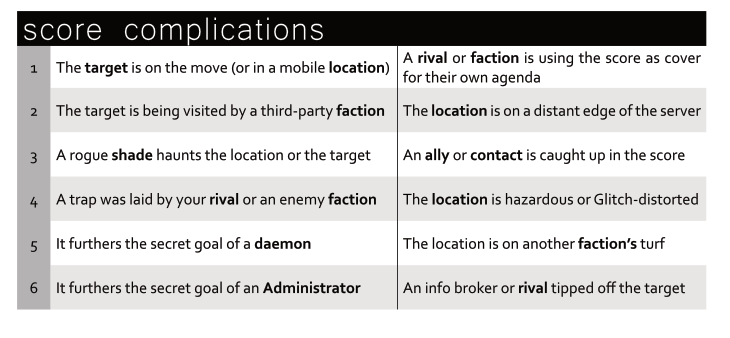The question of how much time to devote to a score is one of the great mysteries of GMing a Forged game! My personal take is that a Score lasts as long as it feels like it should, and you should feel guided by the fiction at the table. If it feels like things are going too well, consider introducing a mid-Score twist (those are always fun! There are tables to roll on for ideas for these in the Player Handouts by the way). If it is going badly and the players want to cut their losses, maybe give them an obstacle or two to consider and then let them get out.

You already have planned out some potential challenges and considerations that the crew of players would have to face for your score... that's excellent! That sketch of the score you have is about the upper limit of my own planning for an average score. I would usually usher the players into making the Engagement Roll, then based on that introduce one of the challenges I had planned: their initial glimpse at the situation on the ground. Then carry on based on what happens, tease the prize when it feels like they've earned it, keep things moving and don't bog down too hard in a single challenge (unless the players are really into it! Sometimes the score becomes about the duel between your Breaker and the enemy's top enforcer, and that's ok too).
If the score feels like it's running too long, don't be afraid to cut some content and keep it short. Every few sessions I sometimes ask my players how they feel about the length of recent scores (as well as other thoughts they have about the game). Sometimes scores can be very short, and sometimes they want to be longer and more involved. One of the things I try to ask in the middle of sessions is "How important does this feel like it should be to your user? Is this a big scene or just a simple challenge?" If a scene or a score or an adversary is very important to the story they players want to tell, we can take more time with it and zoom in the action a bit.
There have been some Forged games that attempt to formalize the procedure. The example that comes to mind for me is Sig: City of Blades (link to a DriveThru RPG store page) where every score always begins with 3 essential clocks named "Politics, Profit, and Peril" which basically guide the length of the score. The Politics clock represents the actual objective of the score (in Sig, every score is always about securing a claim through some means), and I believe that it's length is determined by the GM based on how difficult the task initially appears to be. The Profit clock is basically a wager on the part of the crew as to how much money they want to make while attempting to achieve the political objective. And the Peril clock is some kind of impending threat that, once the clock completes, forces the crew to disengage (and potentially forego either their Political or Profit goal clocks if they were not yet filled).
Off the top of my head I don't remember exactly how player actions map onto these clocks... it might not be the normal routine where a "Standard" effect is 2 ticks and a "Great" is 3, for example. I think it was more like the GM would add 1 tick when a major task has been accomplished. To be clear I haven't tried this method myself, though my gut feel is that it would be a little too rigid and reductive for my tastes. Still, the concept can be useful if you want to have more structure!

